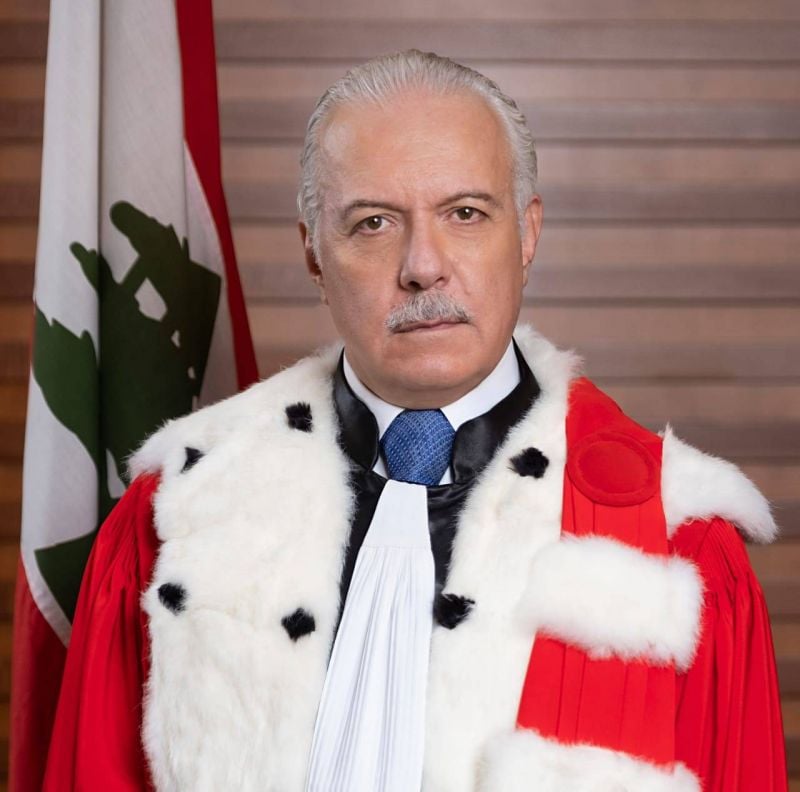
President of the Higher Judicial Council, Souhail Abboud. (Credit: Higher Judicial Council)
BEIRUT — In a speech Thursday, the president of the Higher Judiciary Council (HJC), judge Souhail Abboud, called for the adoption of a law on the independence of the judiciary. The intervention comes at a time when Lebanon's judiciary is under heavy political pressure and important probes, such as the August 4, 2020 Beirut port explosion, are stalled.
Abboud delivered his speech on the occasion of the commemoration of the assassination of four judges killed in Saida's justice palace on June 8, 1999.
"The rule of law and justice go hand in hand with a free, independent and efficient judiciary, but where do we stand and how do we get there? The answer is clear and unequivocal: there can be no justice without a law guaranteeing its independence, without a complete, united and coherent HJC, which can take responsibility for its decisions."
Parliament referred the law on the independence of the judiciary to parliamentary committees in February 2022. The committees heavily modified the basic text, much to the dismay of the HJC and those who drafted the original text.
Abboud again called for the original text to be adopted "in accordance with the proposal made by the HJC."
This anti-corruption law is one of the reforms awaited by the international community to release aid to Lebanon.
"There can be no justice without judicial appointments and permutations based on objective criteria and not [political] interference," the magistrate declared.
A series of judicial nominations have been expected for years. Former president Michel Aoun blocked the file, which has been passed back and forth between concerned officials. Since Aoun's mandate ended no new head of state has been elected to reopen it.
'Cronyism'
"There can be no justice without truth and justice being done in the case of the Beirut port explosion, without the prosecution of those involved in corruption and waste of public funds, without any cronyism," Abboud added.
The investigation into the Beirut port blast is once again at a standstill. At the time of his resumption of the investigation, judge Tarek Bitar had launched proceedings against several personalities, including public prosecutor Ghassan Oueidate. In response, Oueidate ordered the release of the 17 suspects detained without trial since August 2020. Recently the HJC appointed a magistrate to investigate Oueidate's legal action against Bitar, but no progress has yet been made.
In his speech, Abboud also addressed the situation of judges in the face of the crisis.
"There can be no justice without fair salaries and remuneration for judges and clerks," he said.
In 1999, assassins situated outside two first-floor windows of the court opened fire on magistrates Hassan Osman, Imad Fouad Chehab, Walid Harmouch and Assem Bou Daher, respectively president and members of the Saida Criminal Court and the court's public prosecutor. The gunmen fled in the direction of Ain al-Hilweh Palestinian refugee camp, leaving behind their machine guns and a rocket launcher. Four people were sentenced to death in 2019 for the murder of the judges.
Lebanese law allows capital punishment, but a moratorium on executions has been in force in the country since 2004.